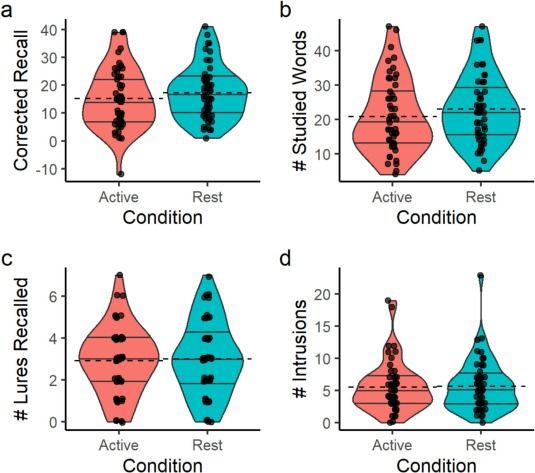| statistical learning | memory consolidation | predictive processing | implicit cognition | (local) sleep |
Can we seriously build synthetic consciousness?
And if so, where do we start?
I’m super excited to present recent publication in Neuroscience & Biobehavioral Reviews where @jaanaru.bsky.social and I confront this challenge head on.
1/n

Can we seriously build synthetic consciousness?
And if so, where do we start?
I’m super excited to present recent publication in Neuroscience & Biobehavioral Reviews where @jaanaru.bsky.social and I confront this challenge head on.
1/n
Article (FR): stm.cairn.info/magazine-cer...
#MindWandering #Neuroscience
@thomasandrillon.bsky.social
Article (FR): stm.cairn.info/magazine-cer...
#MindWandering #Neuroscience
@thomasandrillon.bsky.social
This is quite a statement!
astera.org/neuroscienti...

This is quite a statement!

Cognitive maps are flexible, dynamic, (re)constructed representations
#psychscisky #neuroskyence #cognition #philsky 🧪
Cognitive maps are flexible, dynamic, (re)constructed representations
#psychscisky #neuroskyence #cognition #philsky 🧪
We’ll be presenting three posters on statistical learning — would love to see you there!
@psychonomicsociety.bsky.social @orspesthy.bsky.social @florahann.bsky.social
We’ll be presenting three posters on statistical learning — would love to see you there!
@psychonomicsociety.bsky.social @orspesthy.bsky.social @florahann.bsky.social
Across 473 participants, we found no sex differences in implicit statistical learning — a core mechanism of predictive processing.
The predictive brain appears remarkably universal.
doi.org/10.1101/2025...
#neuroscience
#learning
#PsychSciSky
#neuroskyence

Across 473 participants, we found no sex differences in implicit statistical learning — a core mechanism of predictive processing.
The predictive brain appears remarkably universal.
doi.org/10.1101/2025...
#neuroscience
#learning
#PsychSciSky
#neuroskyence
Our team shows that statistical learning & inhibitory control cooperate during behavior.
A flexible brain optimizes both automatic & controlled processes together - not either/or.
Preprint:Cooperative interaction between statistical learning and inhibitory control
doi.org/10.31234/osf...
Our team shows that statistical learning & inhibitory control cooperate during behavior.
A flexible brain optimizes both automatic & controlled processes together - not either/or.
Preprint:Cooperative interaction between statistical learning and inhibitory control
doi.org/10.31234/osf...
www.youtube.com/watch?v=ZzZl...

www.youtube.com/watch?v=ZzZl...
ADHD-like traits don’t just affect inhibition or learning — they reshape their interaction.
A key problem in neuroscience is studying functions in isolation, but cognition emerges from their interplay.
doi.org/10.1101/2025...
#neuroscience
#learning
#PsychSciSky
#neuroskyence

ADHD-like traits don’t just affect inhibition or learning — they reshape their interaction.
A key problem in neuroscience is studying functions in isolation, but cognition emerges from their interplay.
doi.org/10.1101/2025...
#neuroscience
#learning
#PsychSciSky
#neuroskyence
People who experienced more childhood unpredictability show faster implicit statistical learning in adulthood.
Supports the “hidden talents” view of adversity.
Read here 👉 doi.org/10.1101/2025...
#neuroscience
#learning
#PsychSciSky
#neuroskyence

People who experienced more childhood unpredictability show faster implicit statistical learning in adulthood.
Supports the “hidden talents” view of adversity.
Read here 👉 doi.org/10.1101/2025...
#neuroscience
#learning
#PsychSciSky
#neuroskyence
gccognitive.es/conference-2...

gccognitive.es/conference-2...
elifesciences.org/reviewed-pre...

Our #Consensus paper presents the collective insights of 27 researchers worldwide 🌎 💬 🌍 💬 🌏 💬:
🔗 doi.org/10.31234/osf...


Our #Consensus paper presents the collective insights of 27 researchers worldwide 🌎 💬 🌍 💬 🌏 💬:
🔗 doi.org/10.31234/osf...
doi.org/10.1038/s415...
#Autism #Learning #StatisticalLearning

doi.org/10.1038/s415...
#Autism #Learning #StatisticalLearning
How do executive functions shape our ability to rewire habits / update predictive models?
✔️ Better inhibition = easier habit change
❌ Strong semantic fluency = harder to update old patterns because of the long-term memory access.
doi.org/10.1038/s415...

How do executive functions shape our ability to rewire habits / update predictive models?
✔️ Better inhibition = easier habit change
❌ Strong semantic fluency = harder to update old patterns because of the long-term memory access.
doi.org/10.1038/s415...
We go beyond studying goal-directed & habitual control in isolation — using an unsupervised learning approach to see how they interact.
OC tendencies tip the balance toward rigid habits over flexible goals.
doi.org/10.1101/2025...
#OCD #PsychSciSky
#StatsSky
#neuroskyence

We go beyond studying goal-directed & habitual control in isolation — using an unsupervised learning approach to see how they interact.
OC tendencies tip the balance toward rigid habits over flexible goals.
doi.org/10.1101/2025...
#OCD #PsychSciSky
#StatsSky
#neuroskyence
Inhibiting the right or both dorsolateral prefrontal cortices with rTMS boosts unsupervised statistical learning.
Likely by shifting toward a more exploratory processing style.
#PsychSciSky
#StatsSky
#neuroskyence
biorxiv.org/content/10.1...
#neuroscience #predictiveprocessing

Inhibiting the right or both dorsolateral prefrontal cortices with rTMS boosts unsupervised statistical learning.
Likely by shifting toward a more exploratory processing style.
#PsychSciSky
#StatsSky
#neuroskyence
biorxiv.org/content/10.1...
#neuroscience #predictiveprocessing
Our study shows MW impairs executive control but BOOSTS implicit learning of hidden patterns. We found that the weaker the control, the greater the learning gain.
doi.org/10.1101/2025...
#statisticallearning
#sleeppeeps #psychscisky

Our study shows MW impairs executive control but BOOSTS implicit learning of hidden patterns. We found that the weaker the control, the greater the learning gain.
doi.org/10.1101/2025...
#statisticallearning
#sleeppeeps #psychscisky
Both #sleep and eyes-closed waking rest improve memory. But sleep also increases FALSE recall in some paradigms.
Q: Does eyes-closed rest similarly increase false recall?
A: No.
Free access link:
authors.elsevier.com/a/1lYgb3qNaA...
#sleeppeeps #psychscisky 🧠🟦

Both #sleep and eyes-closed waking rest improve memory. But sleep also increases FALSE recall in some paradigms.
Q: Does eyes-closed rest similarly increase false recall?
A: No.
Free access link:
authors.elsevier.com/a/1lYgb3qNaA...
#sleeppeeps #psychscisky 🧠🟦
www.scientificamerican.com/article/when...


